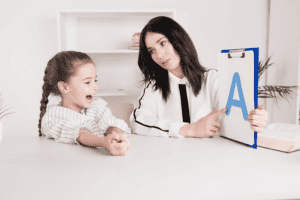Behavior support strategies play a crucial role in fostering positive environments across various settings in Mason, OH. Whether in educational institutions, community centers, or residential facilities, implementing effective strategies is essential for promoting understanding, cooperation, and growth. Here’s a detailed exploration of tailored behavior support approaches for different settings in Mason, OH:
Educational Institutions
In schools and educational settings in Mason, OH, behavior support strategies focus on creating inclusive and supportive environments. Techniques such as Positive Behavior Interventions and Supports (PBIS) are commonly employed. PBIS emphasizes proactive teaching of behavioral expectations and reinforcement of positive behaviors through recognition and rewards. In addition, individualized behavior plans are developed to address specific needs, ensuring that students receive targeted support tailored to their challenges.
Positive Behavior Interventions and Supports (PBIS)
PBIS is widely implemented across schools in Mason, OH, as a proactive approach to behavior management. It involves defining clear behavioral expectations for students and teaching these expectations explicitly. Students are recognized and rewarded for displaying positive behaviors, which helps to reinforce desired actions and create a supportive school climate. PBIS also includes strategies for early intervention and support for students who may be at risk of behavioral challenges.

Individualized Behavior Plans (IBPs)
For students with specific behavioral needs or disabilities, individualized behavior plans (IBPs) are developed in collaboration with teachers, parents, and behavioral specialists. These plans outline personalized strategies and interventions tailored to the student’s strengths, challenges, and learning style. IBPs often include goals for behavior improvement, methods for tracking progress, and strategies for addressing triggers or challenges that may arise in the school environment.
Collaborative Problem-Solving
Educational institutions in Mason, OH, emphasize collaborative problem-solving approaches to address behavioral issues effectively. Teachers, counselors, administrators, and support staff work together to identify the root causes of behavioral challenges and develop solutions that support the student’s overall well-being and academic success. This collaborative approach ensures that interventions are comprehensive, addressing both the academic and social-emotional aspects of students’ lives.
Professional Development and Training
Schools in Mason, OH, invest in ongoing professional development and training for educators and staff members. Training sessions focus on understanding behavioral disorders, implementing evidence-based interventions, practicing effective communication strategies, and utilizing de-escalation techniques. This continuous training equips school personnel with the knowledge and skills needed to support students with diverse behavioral needs effectively.
Family and Community Engagement
Recognizing the importance of a supportive network, educational institutions in Mason, OH, actively involve families and the broader community in behavior support efforts. Open communication channels are maintained with parents, guardians, and caregivers to share information, seek input, and collaborate on behavior management strategies. Community partnerships with local organizations, mental health professionals, and social services also provide additional resources and support for students and families facing behavioral challenges.
Community Centers and Public Spaces
Behavior support in community centers and public spaces in Mason, OH, emphasizes community engagement and proactive intervention. Strategies include clear communication of behavioral expectations, accessible resources for individuals with diverse needs, and trained staff members who can de-escalate situations effectively. Community involvement plays a crucial role, with initiatives that promote understanding and acceptance of behavioral differences.
Community centers and public spaces serve as vital hubs for fostering inclusive behavior support practices. By prioritizing clear communication, accessibility, trained staff, community engagement, and positive reinforcement, these settings create environments where all individuals can thrive and contribute to their community. Through ongoing commitment to inclusivity and collaboration with residents, Mason’s community centers continue to exemplify best practices in behavior support, ensuring that everyone feels valued and respected in public settings.
Residential Facilities and Group Homes
In residential settings in Mason, OH, such as group homes or assisted living facilities, behavior support strategies focus on creating a structured and supportive living environment. This includes personalized behavior plans that are developed collaboratively with residents, families, and staff members. Emphasis is placed on promoting independence, building life skills, and providing consistent positive reinforcement for desired behaviors. Staff training in crisis prevention and intervention ensures that challenges are addressed with empathy and professionalism.
Individualized Behavior Plans
Behavior support in residential facilities begins with the development of individualized behavior plans. These plans are crafted collaboratively with residents, their families or guardians, and a multidisciplinary team of professionals. They outline specific goals, interventions, and strategies to address behavioral challenges effectively. Plans are personalized to meet the unique needs and preferences of each resident, ensuring a supportive and empowering approach to behavior management.
Structured and Supportive Environment
Creating a structured and supportive environment is crucial in residential settings. This includes establishing clear routines, rules, and expectations that promote consistency and predictability. Staff members are trained to implement these structures while maintaining flexibility to accommodate individual preferences and needs. Visual supports, such as schedules and behavioral charts, are used to enhance communication and understanding, reducing anxiety and promoting independence among residents.
Positive Reinforcement and Skill Development
Behavior support strategies emphasize positive reinforcement to encourage desired behaviors. Residents receive praise, rewards, or privileges for demonstrating appropriate conduct, fostering a culture of encouragement and motivation. Concurrently, staff members actively teach and reinforce social and life skills essential for independent living. These skills may include communication, problem-solving, self-care, and conflict resolution, empowering residents to navigate daily challenges effectively.
Crisis Prevention and Intervention
In residential facilities, staff members undergo rigorous training in crisis prevention and intervention techniques. This training equips them to recognize early signs of distress, de-escalate potentially volatile situations, and implement strategies to ensure the safety and well-being of residents and staff. Crisis management plans are in place to guide staff in responding to emergencies calmly and effectively while prioritizing the dignity and rights of individuals under their care.
Family and Community Involvement
Behavior support strategies in residential settings extend beyond the facility’s walls to encompass family and community involvement. Families are integral partners in developing and reviewing behavior plans, providing valuable insights and support. Community engagement initiatives foster understanding and acceptance of residents, promoting inclusive practices and reducing stigma associated with behavioral differences.
Workplace Environments
Behavior support in workplace settings in Mason, OH, revolves around fostering a positive and inclusive corporate culture. Strategies include employee training on diversity, equity, and inclusion, clear policies and procedures regarding behavior expectations, and mechanisms for addressing conflicts or challenges proactively. Workplace accommodations are provided when necessary to support employees with behavioral differences, ensuring equal opportunities for professional growth and success.
Workplace environments thrive on the foundation of robust behavior support strategies that prioritize inclusivity, respect, and continuous improvement. By integrating diversity training, clear policies, proactive conflict resolution, accommodations, and professional development opportunities, organizations create a positive and supportive workplace culture. This approach not only enhances employee satisfaction and retention but also strengthens the organization’s reputation as a leader in fostering a diverse and inclusive workplace where every individual can succeed.
Conclusion
Effective behavior support strategies is pivotal across various environments. Whether in educational settings, workplaces, or community spaces, Positive Solutions Behavior Group LLC in Mason, OH, offers tailored solutions to promote positive behaviors. Their expertise spans comprehensive behavior assessments, personalized intervention plans, and ongoing support to ensure sustainable behavioral improvements. By prioritizing individualized strategies and evidence-based practices, Positive Solutions Behavior Group LLC empowers clients to achieve behavioral goals and foster inclusive environments.
For more information on implementing effective behavior support strategies, contact Positive Solutions Behavior Group LLC at 859-282-0400. Their dedicated team is committed to providing specialized behavioral services designed to meet the unique needs of each setting, promoting positive outcomes for all individuals involved.






